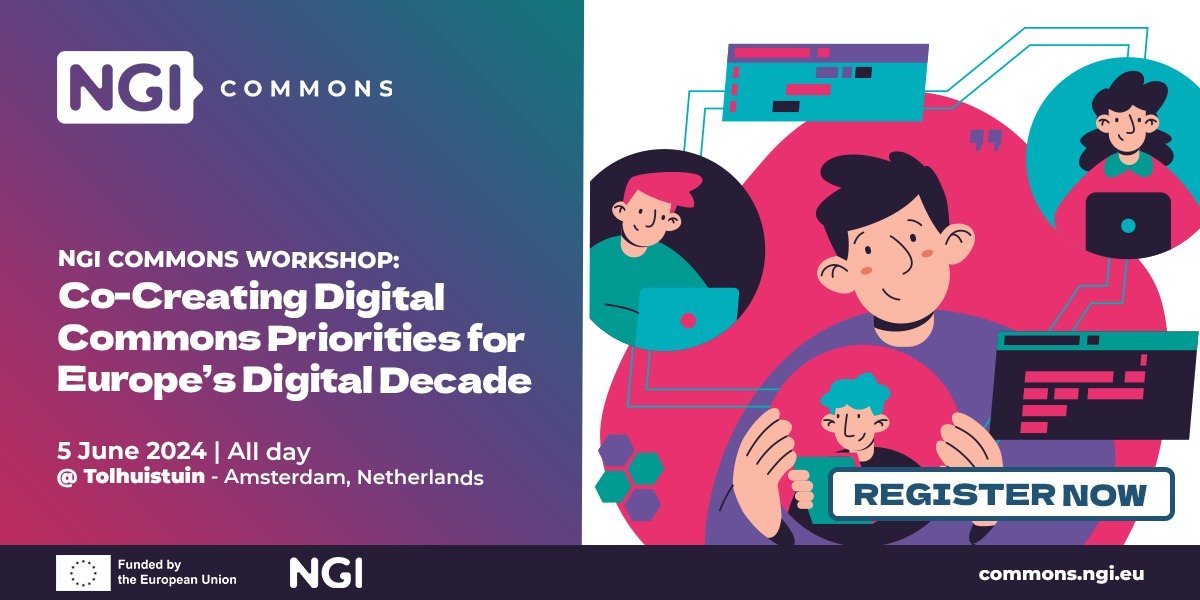
- This event has passed.
NGI COMMONS WORKSHOP 2024: CO-CREATING DIGITAL COMMONS PRIORITIES FOR EUROPE’S DIGITAL DECADE
June 5, 2024 @ 09:00 – 17:00

Have you ever thought in detail about what a more open Internet might look like? Have you wondered how governments might work more in the open alongside the rest of society? Or perhaps you’ve considered what it might look like to more intentionally co-create Europe’s digital future by developing shared, public interest digital resources and infrastructures?
If so, the NGI Commons project would like to invite you to join a unique one-day workshop in Amsterdam, in the lead up to the PublicSpaces Conference 2024. This exploratory workshop will inform participants about what digital commons are and their increasing relevance in the European digital policy landscape, as well as work with attendees to co-create priorities for digital commons policymaking during the rest of Europe’s digital decade. The event will also raise awareness around opportunities for funding for digital commons projects in the Next Generation Internet (NGI) ecosystem.
The workshop is an input into the research and policy work of the NGI Commons Initiative, with the outputs being summarized in a detailed policy report that will inform future activities of the initiative. In the morning, we will catch participants up to speed on digital commons policies, the Next Generation Internet (NGI) Initiative, and the state of the digital commons ecosystem through interactive presentations and seminars. In the afternoon, we will engage participants to brainstorm priorities, topics, and technologies that could be of relevance to future digital commons policymaking in the EU.
Throughout the day, we will consider questions like:
- Which ongoing initiatives are underway in Europe that seek to impact the policy landscape for digital commons?
- Which European values and principles are key to uphold through new policies around digital commons?
- What should the future of the digital commons landscape look like in Europe and how might that differ according to the needs of different groups (e.g., national governments, civil society, private sector, development partners, etc)?

